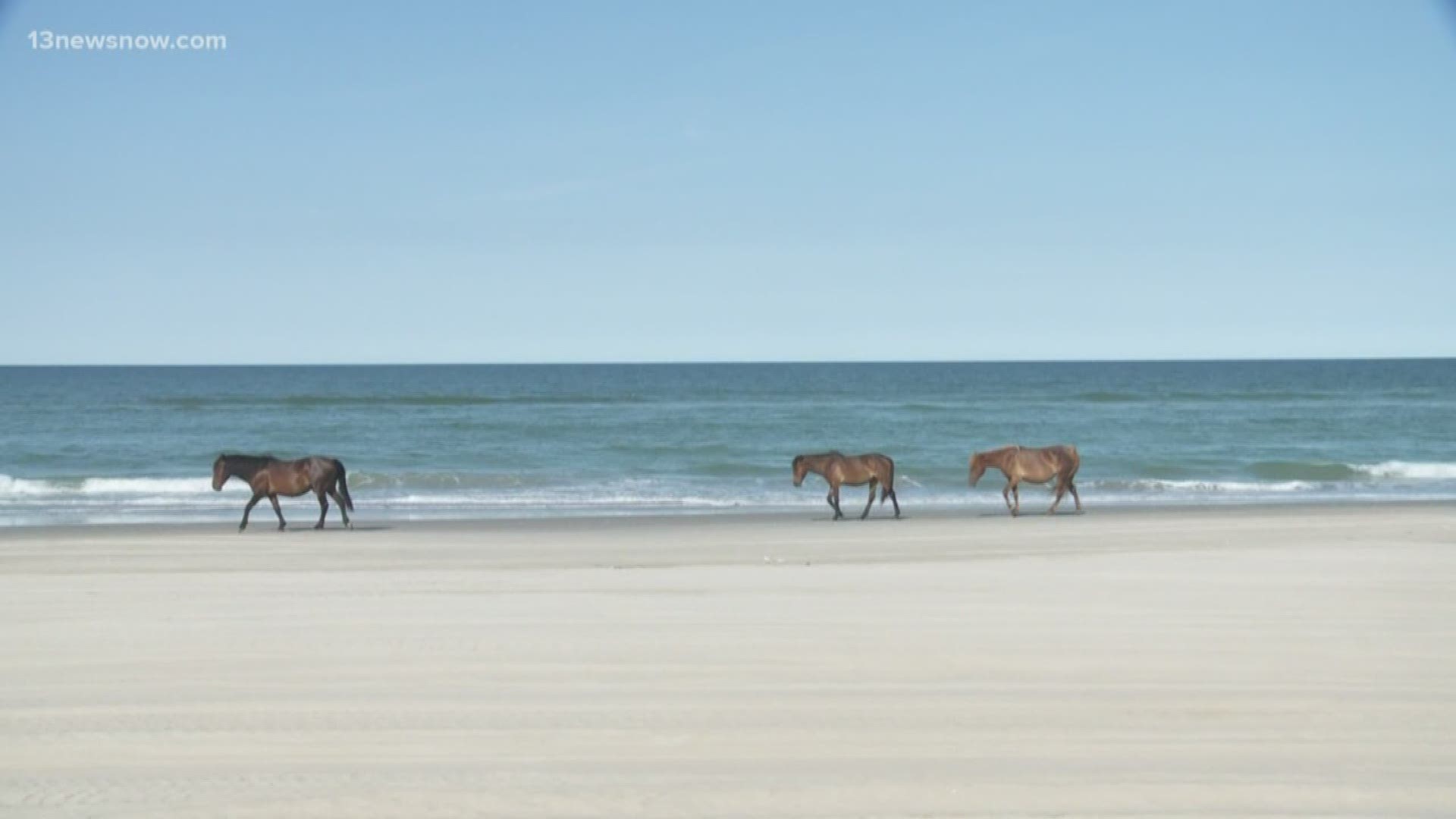CURRITUCK COUNTY, N.C. — They’ve roamed the beaches of Currituck for 500 years, but their numbers are dwindling.
As people do their part to protect the wild horses, visitors continue to approach and feed the animals.
Anna Sweeney, a visitor from Boston, said she and her family travel to Currituck County for vacation every year.
Sweeney said the highlight of the trip is the sight of the Corolla Wild Horses taking a dip in the water.
“The most beautiful thing I’ve ever seen in my life, honestly,” said Sweeney.
She admires them from afar, but that’s not always the case.
Some get too close.
“Last year we were down here and there were six or seven of them walking through and these young girls, probably 12, walked right up to them and wanted to take their Christmas card with the horses,” said Sweeney. “Honestly, I was flabbergasted. I cannot believe someone would get that close to a wild animal.”
Touching, feeding, or approaching the wild horses within 50 feet is against the law.
On Monday afternoon, Currituck County Sheriff Matthew Beickert announced deputies will begin strictly enforcing laws that protect the wild horses.
Beickert said deputies will no longer give people warnings.
Deputies will issue citations of up to $500 to anyone who breaks the laws. Beickert said the crackdown is a result of an influx of reports of violations this summer.
“All day long, it’s continuing to happen and the deputies are kind and polite,” said Beickert. “We educate people, but each week, you have a new group of people that you have to re-educate, and, if you have a reputation of being strict, that will spread.”
Jo Langone, the Chief Operating Officer of the Corolla Wild Horse Fund said the endangered horses face a serious threat from humans. The horses feed on natural resources along the beach and breaking away from their strict diet can be deadly.
“If a horse is to eat something that is not usual in its own diet, it could have colic, which could actually be fatal. There’s also the concern that they could become too habituated, too used to humans, and they will actually depend on humans for their food,” said Langone.
Humans are also at risk when they get too close to the wild animals.
“They see them as gentle horses, but if anyone’s witnessed a stallion fight, they can be brutal. They really don’t care what human being is around at that time,” said Langone.
Sweeney was relieved to hear that deputies will begin issuing citations.
“We've come down here for 10 years now, and we've seen less and less of them,” said Sweeney.
Langone said there are only about 100 Corolla Wild Horses left on the Northern Outer Banks.
“This is all personal for me because I love these horses. I really do,” said Langone. “They are so unique and so important.”

